On October 4th, Stanford University in the United States released the list of the world's top 2% scientists (World's Top 2% Scientists 2023). This list selects the top 2% of scientists from a global pool of 7 million scientists, categorized into 22 subject areas and 176 sub-subject areas. The ranking is published on the Mendeley Data platform. Based on the Scopus database, this list comprehensively evaluates scientists according to parameters such as research output, Google Scholar Metrics journal scores, H-index, citation of research results, and author ranking position in research results. It aims to provide a measure of a scientist's long-term research performance, reflecting their influence more objectively and authentically.
The list is divided into the "Lifetime Scientific Impact Ranking" and the "Annual Scientific Impact Ranking". A total of 7 professors from the School of Artificial Intelligence (School of Future Technology) have been included in the list. Among them, Professor Pan Zhigeng and Professor Xia Yousheng have been selected for the "Lifetime Scientific Impact Ranking"; Professor Luo Jingjia, Professor Xu Jun, Professor Li Chunbiao, Dr. Mithun Mukherjee, Professor Xia Yousheng, and Associate Professor Jiang Hao have been selected for the "2022 Annual Scientific Impact Ranking".
The "Lifetime Scientific Impact Rankings (1960-2023)" assesses the comprehensive impact performance of scientists throughout their careers, while the "2023 Annual Scientific Impact Rankings" focuses on the academic impact of scientists in 2022. Both rankings include ranking information with and without self-citation data, as well as the comprehensive citation index ranking of each scientist within their sub-discipline. This list data is the result of a project collaborated by Elsevier and Professor John P. A. Ioannidis' team at Stanford University, USA. Its intention is not to rank scholars, but rather to explore the multidimensional display of scientific research status from the perspective of scientists, providing a measurement indicator for long-term scientific research performance of scientists, hoping to reflect scientists' influence more objectively and authentically.
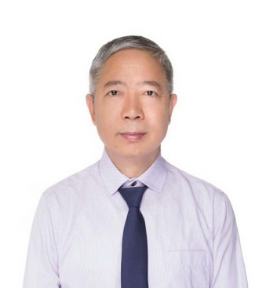
Professor Pan Zhigeng, Dean of the School of Artificial Intelligence; Dean of the Metaverse Research Institute; Deputy Director of the National Virtual Simulation Experimental Center; Executive Vice Chairman of the China Metaverse Technology and Application Innovation Platform; Chief Scientist of the National Key R&D Program, and Longshan Scholar of Nanjing University of Information Science & Technology. Professor Pan Zhigeng has been selected for the list in three fields: 1) Artificial Intelligence & Image Processing; 2) Software Engineering; 3) Information & Communication Technologies. With 30 years of research experience in virtual reality, Professor Pan Zhigeng has been concerned about the development of the metaverse since 2016 and has recently presented reports on the metaverse at multiple international conferences and domestic forums. He has published more than 180 papers in total, including over 80 papers in internationally important journals and top conferences, over 80 SCI papers, and over 120 EI papers. His published papers have been widely cited by scholars both domestically and internationally; according to Google Scholar, his works have been cited nearly 3,000 times. He has presided over and completed two key projects of the National Natural Science Foundation of China, one project each from the National Key R&D Program and the National Science and Technology Support Program, and nearly 20 other provincial and ministerial level projects. He has won one second prize of the National Science and Technology Progress Award (2008) and one second prize of the National Natural Science Award (2020), as well as five provincial and ministerial level awards. In 2022, he was selected as one of the top 2% top scientists in the world. His main research directions include: virtual reality and human-computer interaction, virtual humans, smart education, intelligent medicine, medical metaverse, etc.
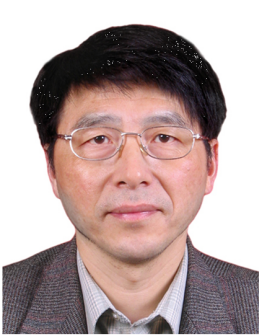
Professor Xia Yousheng has been selected for the list in three fields: 1) Artificial Intelligence & Image Processing; 2) Industrial Engineering & Automation; 3) Information & Communication Technologies. Professor Xia Yusheng has long been engaged in research on intelligent optimization computation and pattern recognition. He has achieved a series of influential research results in the fields of intelligent optimization algorithms, blind signal system identification, image restoration, and image super-resolution reconstruction, which have been published in international core journals such as Science China, Journal of Optimization Theory and its Applications, IEEE Trans. on Neural Networks and Learning Systems, IEEE Trans. on Image Processing, IEEE Trans. on Signal Processing, IEEE Trans. on Automatic Control, Automatica, Pattern Recognition, etc., with more than 60 papers as the first author and more than 40 papers published in IEEE Transactions. His papers have been widely cited, and he has been selected as a highly cited scholar in the field of computer science in China from 2014 to 2021. His research achievements have been fully recognized, praised, and applied by many experts and scholars both domestically and internationally. His research achievement on neural networks, "Projection Neural Dynamics Optimization Model and Theory", won the second prize of the Natural Science Award of the Chinese Association of Automation in 2019 (ranking first). His research achievement on optimization modeling, "Intelligent Modeling and Control of Nonlinear Systems Based on Optimization", won the second prize of the Natural Science Award of the Ministry of Education in 2010 (ranking second). His research achievement on numerical estimation and parameter learning, "Model Parameter Estimation and Recursive Learning Algorithm with Interference", won the third prize of the Natural Science Award of Fujian Province in 2016 (independent). He has presided over and completed three general projects of the National Natural Science Foundation of China. He has presided over and completed one special research fund for doctoral programs in higher education. Currently, he is presiding over one ongoing general project of the National Natural Science Foundation of China, serving as an editorial board member of the journal IEEE Transactions on Cybernetics, and is a key member of the Smart Meteorology and Intelligent Algorithms Team at Nanjing University of Information Science and Technology.
 Professor Luo Jingjia, a nationally distinguished expert and doctoral supervisor, serves as the dean of the Institute of Climate and Application Frontier Research and the Institute of Smart Meteorology at Nanjing University of Information Science and Technology. She is also a leader of Jiangsu Province's "double innovation talents" and "double innovation teams," and the chief scientist of key research and development projects funded by the Ministry of Science and Technology. Professor Luo has been recognized in three fields: 1) Meteorology & Atmospheric Sciences; 2) Oceanography; and 3) Earth & Environmental Sciences. She has been included in the list of the world's top 1,000 most influential scientists in climate change research, as selected by Reuters in 2021. Currently, she serves as a member of the International CLIVAR Pacific Regional Committee and the secretary-general of the Artificial Intelligence Ocean Specialist Committee. Professor Luo has received numerous domestic and international awards, including the "Young Scientist Award" from the Japanese government and the "Research Achievement Award" from the Japan Agency for Marine-Earth Science and Technology. She has published over 160 high-level papers (including in Nature, Science, PNAS, etc.), with a total citation count exceeding 15,000 according to Google Scholar. The climate prediction system developed by her at Nanjing University of Information Science and Technology was selected for the National 13th Five-Year Plan Science and Technology Achievements Exhibition.
Professor Luo Jingjia, a nationally distinguished expert and doctoral supervisor, serves as the dean of the Institute of Climate and Application Frontier Research and the Institute of Smart Meteorology at Nanjing University of Information Science and Technology. She is also a leader of Jiangsu Province's "double innovation talents" and "double innovation teams," and the chief scientist of key research and development projects funded by the Ministry of Science and Technology. Professor Luo has been recognized in three fields: 1) Meteorology & Atmospheric Sciences; 2) Oceanography; and 3) Earth & Environmental Sciences. She has been included in the list of the world's top 1,000 most influential scientists in climate change research, as selected by Reuters in 2021. Currently, she serves as a member of the International CLIVAR Pacific Regional Committee and the secretary-general of the Artificial Intelligence Ocean Specialist Committee. Professor Luo has received numerous domestic and international awards, including the "Young Scientist Award" from the Japanese government and the "Research Achievement Award" from the Japan Agency for Marine-Earth Science and Technology. She has published over 160 high-level papers (including in Nature, Science, PNAS, etc.), with a total citation count exceeding 15,000 according to Google Scholar. The climate prediction system developed by her at Nanjing University of Information Science and Technology was selected for the National 13th Five-Year Plan Science and Technology Achievements Exhibition.
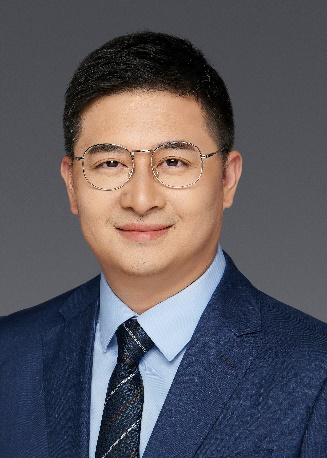
Professor Xu Jun, Vice Dean of the School of Artificial Intelligence and Executive Dean of the Institute of Intelligent Healthcare, has been listed in three fields: 1) Artificial Intelligence & Image Processing; 2) Nuclear Medicine & Medical Imaging; and 3) Clinical Medicine. Professor Xu Jun obtained his PhD from the Department of Control Science and Engineering at Zhejiang University in 2007. He has served as a postdoctoral researcher and visiting professor at Rutgers University and Case Western Reserve University's Department of Biomedical Engineering. He also serves as the Deputy Director of the Medical Image Analysis Specialty Committee of the Jiangsu Provincial Artificial Intelligence Society, a member of the Digital Pathology and Artificial Intelligence Committee of the Pathology Branch of the Chinese Medical Association, a standing committee member of the Medical Image Information and Control Specialty Committee of the Chinese Biomedical Engineering Society, and the rotating chair of the Fourth Youth Symposium on Medical Image Computing. He has presided over multiple joint key projects and general projects of the National Natural Science Foundation of China, as well as provincial and ministerial projects. He has participated in multiple key projects and major integrated projects of the National Natural Science Foundation of China's major research plan "Research on Molecular Function Visualization of Tumor Evolution, Diagnosis, and Treatment". His research areas include medical image computing, computational pathology, digital pathology, and disease prevention, diagnosis, treatment, and prognosis based on quantitative analysis of millimeter-scale imaging and micron-scale routine pathological sections. His main focus is on 1) automatic recognition and diagnosis of diseases and classification of subtypes, 2) quantification and characterization of image phenotype description based on sub-visual features, and 3) prediction and prognosis of disease metastasis risk and malignancy based on medical big data and multi-omics. He hopes that these research results will assist doctors in further improving disease prevention, diagnosis, and prognosis in the future, benefiting patients.
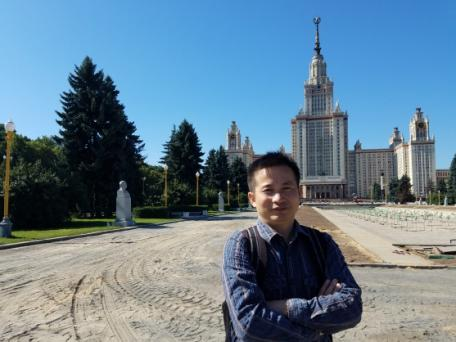 Professor Li Chunbiao, with a PhD, holds the positions of professor and doctoral supervisor, and serves as the vice dean of the School of Artificial Intelligence. He is a renowned teacher and an excellent graduate mentor at Nanjing University of Information Science & Technology. Professor Li has been included in the list for three fields: 1) Fluids & Plasmas; 2) General Physics; and 3) Physics & Astronomy. In 2011, Professor Li was selected as a member of the fourth phase of Jiangsu Province's 333 High-level Talent Program, and he was also recognized as an Elsevier Highly Cited Scholar in China for the years 2020-2022. From 2010 to 2014, he was a postdoctoral researcher at Southeast University, and from May 2012 to November 2013, he served as a visiting scholar at the University of Wisconsin-Madison. His primary research interests lie in memristive chaotic circuits, neuromorphic systems, and their applications. He has led and participated in over 10 projects, including the National Natural Science Foundation of China, Provincial Natural Science Foundation, Provincial University Foundation, Provincial "333 Talent" Project, National Postdoctoral Research Foundation, and Special Funds. He has published over 100 core and SCI papers. He has systematically conducted research on memristive systems and memristive neural networks, authored over ten Top 1% ESI database Highly Cited Papers (HCPs) and hot papers, and obtained over ten domestic authorized invention patents. He has received one second prize for National Teaching Achievement Award and one first prize for Jiangsu Province Teaching Achievement Award. His research achievements were awarded the third prize for Jiangsu Province Education, Teaching, and Research Achievement Award (Research Category) in 2018.
Professor Li Chunbiao, with a PhD, holds the positions of professor and doctoral supervisor, and serves as the vice dean of the School of Artificial Intelligence. He is a renowned teacher and an excellent graduate mentor at Nanjing University of Information Science & Technology. Professor Li has been included in the list for three fields: 1) Fluids & Plasmas; 2) General Physics; and 3) Physics & Astronomy. In 2011, Professor Li was selected as a member of the fourth phase of Jiangsu Province's 333 High-level Talent Program, and he was also recognized as an Elsevier Highly Cited Scholar in China for the years 2020-2022. From 2010 to 2014, he was a postdoctoral researcher at Southeast University, and from May 2012 to November 2013, he served as a visiting scholar at the University of Wisconsin-Madison. His primary research interests lie in memristive chaotic circuits, neuromorphic systems, and their applications. He has led and participated in over 10 projects, including the National Natural Science Foundation of China, Provincial Natural Science Foundation, Provincial University Foundation, Provincial "333 Talent" Project, National Postdoctoral Research Foundation, and Special Funds. He has published over 100 core and SCI papers. He has systematically conducted research on memristive systems and memristive neural networks, authored over ten Top 1% ESI database Highly Cited Papers (HCPs) and hot papers, and obtained over ten domestic authorized invention patents. He has received one second prize for National Teaching Achievement Award and one first prize for Jiangsu Province Teaching Achievement Award. His research achievements were awarded the third prize for Jiangsu Province Education, Teaching, and Research Achievement Award (Research Category) in 2018.
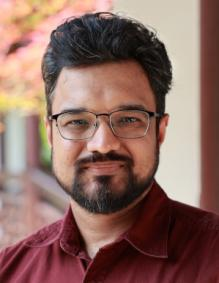
Dr. Mithun Mukherjee,Teacher at the School of Artificial Intelligence, and Longshan Scholar at Nanjing University of Information Science and Technology. has been included in the list for three fields: 1)Networking & Telecommunications;2)Artificial Intelligence & Image Processing;3)Information & Communication Technologies.Dr. Mithun Mukherjee is a university-appointed professor with the School of Artificial Intelligence, Nanjing University of Information Science and Technology, Nanjing, China. He was a specially assigned researcher and assistant professor with the Guangdong Provincial Key Laboratory of Petrochemical Equipment Fault Diagnosis, Guangdong University of Petrochemical Technology, Maoming, China, from 2015 to 2020. His research interests center around the Internet of Things, mobile edge computing, tactile Internet, and ultra-reliable low-latency communications. He has (co)authored more than 150 publications in peer-reviewed international transactions/journals and conferences. He has three granted Chinese patents. Dr. Mukherjee was a recipient of the 2016 EAI WICON, the 2017 IEEE SigTelCom, the 2018 IEEE Systems Journal, and the 2018 IEEE ANTS Best Paper Award. He has been a guest editor for IEEE Internet of Things Journal, IEEE Transactions on Industrial Informatics, ACM/Springer Mobile Networks and Applications, and Sensors. He is a regular reviewer/lead guest editor for many prestigious journals and conferences, serves as the TPC member/chair for various conferences, and organised many special sections/workshops in prestigious international conferences. He is serving as a managing editor in IEEE Future Networks Tech Focus, and Secretary, IEEE Standards Associations O-RAN Industry Relations. He completed his Ph.D. from the Indian Institute of Technology Patna, Patna, India, in 2015. He is a senior member of IEEE.
 Associate Professor Jiang Hao, who graduated from the National Key Laboratory for Mobile Communications at Southeast University in 2019, has been recognized in three fields: 1) Networking & Telecommunications; 2) General Physics; and 3) Information & Communication Technologies. Professor Professor Jiang Hao has been supported by the China Scholarship Council's Public Scholarship Program for Studying Abroad, and visited the Department of Electrical Engineering at Columbia University in New York, USA, for academic exchange from 2017 to 2018. He also serves as a senior member of the China Communications Society and a member of the Communications Branch of the Jiangsu Information Technology Application Society. He has published 65 papers in high-level journals in the field of wireless communications, both internationally and domestically, including IEEE NETWORK, IEEE TWC, IEEE TCOM, IEEE TVT, IEEE WCL, and the Chinese Journal of Electronics. His research achievements have been recognized with the Best Paper Award at the 13th International Conference on Wireless Communications and Signal Processing (WCSP 2021) and the ESI (Essential Science Indicators) Highly Cited Paper Award for 2021. Furthermore, he has led multiple national/provincial scientific research projects, including the National Natural Science Foundation of China, the China Postdoctoral Science Foundation, the Jiangsu Provincial Natural Science Foundation, and the Jiangsu Provincial Higher Education Institutions Natural Science Research Foundation. He has also participated in a national key research and development program, "Basic Theory and Technology of Large-Scale Wireless Communication Physical Layer." Currently, he is mainly focused on research in high-energy-efficiency wireless communication, near-field mobile communication performance optimization, and sixth-generation mobile communication technology. He hopes that these research achievements will not only solve the bottleneck problems in China's wireless communication fundamental technology but also promote the industrialization development of 6G wireless communication.
Associate Professor Jiang Hao, who graduated from the National Key Laboratory for Mobile Communications at Southeast University in 2019, has been recognized in three fields: 1) Networking & Telecommunications; 2) General Physics; and 3) Information & Communication Technologies. Professor Professor Jiang Hao has been supported by the China Scholarship Council's Public Scholarship Program for Studying Abroad, and visited the Department of Electrical Engineering at Columbia University in New York, USA, for academic exchange from 2017 to 2018. He also serves as a senior member of the China Communications Society and a member of the Communications Branch of the Jiangsu Information Technology Application Society. He has published 65 papers in high-level journals in the field of wireless communications, both internationally and domestically, including IEEE NETWORK, IEEE TWC, IEEE TCOM, IEEE TVT, IEEE WCL, and the Chinese Journal of Electronics. His research achievements have been recognized with the Best Paper Award at the 13th International Conference on Wireless Communications and Signal Processing (WCSP 2021) and the ESI (Essential Science Indicators) Highly Cited Paper Award for 2021. Furthermore, he has led multiple national/provincial scientific research projects, including the National Natural Science Foundation of China, the China Postdoctoral Science Foundation, the Jiangsu Provincial Natural Science Foundation, and the Jiangsu Provincial Higher Education Institutions Natural Science Research Foundation. He has also participated in a national key research and development program, "Basic Theory and Technology of Large-Scale Wireless Communication Physical Layer." Currently, he is mainly focused on research in high-energy-efficiency wireless communication, near-field mobile communication performance optimization, and sixth-generation mobile communication technology. He hopes that these research achievements will not only solve the bottleneck problems in China's wireless communication fundamental technology but also promote the industrialization development of 6G wireless communication.
